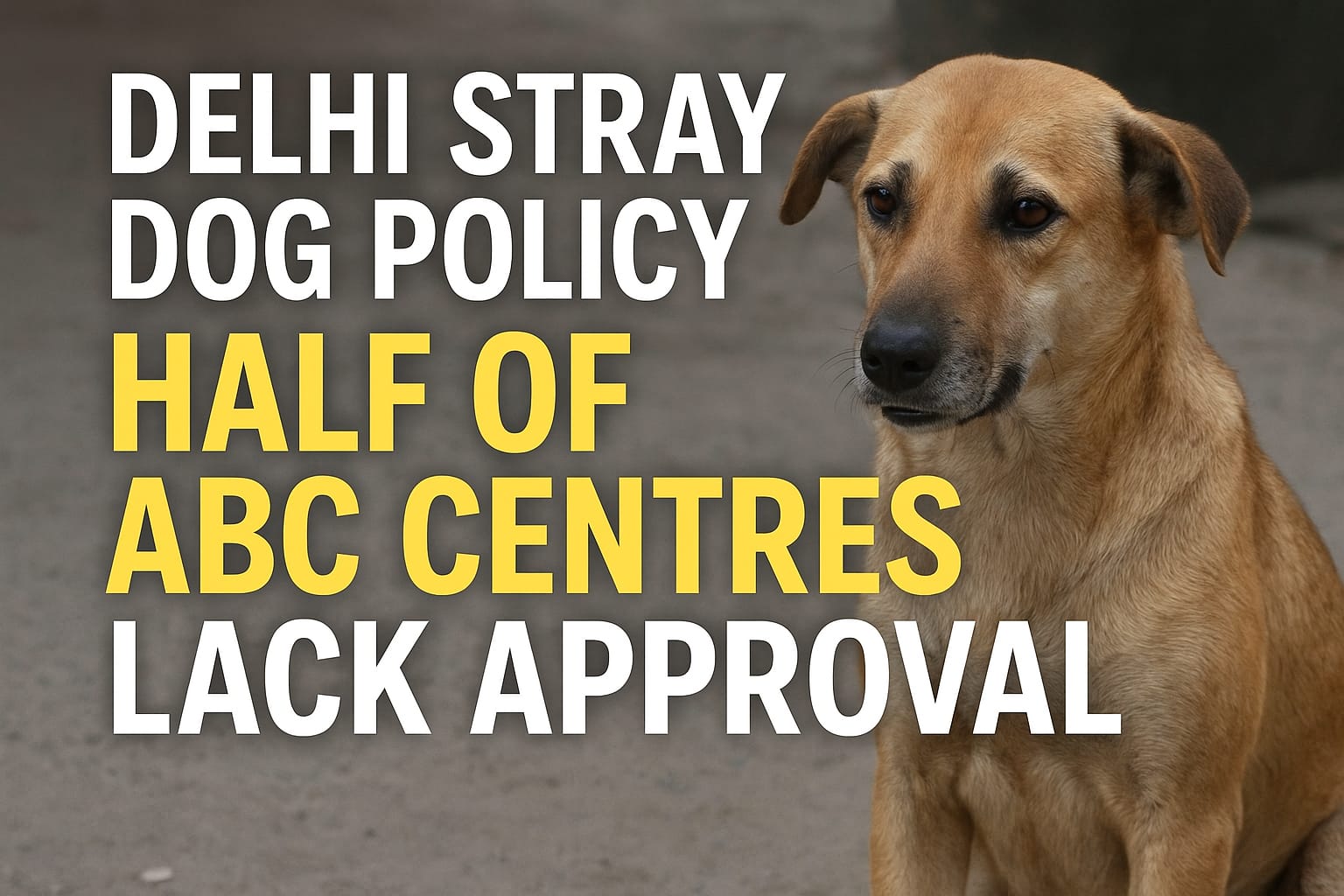
When the Delhi government announced tighter rules to regulate stray dog management, the move stirred a storm. Activists feared that stricter enforcement would mean cruelty, while many residents demanded action against rising dog bites. The new Animal Birth Control Rules 2023 made it mandatory for centers sterilizing and vaccinating dogs to get a project recognition certificate from the Animal Welfare Board of India. This clearance was meant to guarantee humane treatment and medical safety. Yet today more than half of Delhi’s twenty ABC centers still do not have that approval.
This bureaucratic logjam is not just about paperwork. It exposes a deeper struggle between policy ambition and ground realities. The ABC rules require centers to meet minimum standards before they can operate. These include fully equipped operating theatres, kennels, quarantine wards, food storage, CCTV monitoring, pre and post operation rooms and a van fitted with surgical facilities. Without these facilities, a center cannot legally sterilize or vaccinate stray dogs. The intent is sound. The difficulty lies in matching the intent with resources.
The Hindustan Times recently reported that only nine centers in Delhi have secured recognition so far. Others are stuck in the approval process. Some have applied but are waiting for site inspections or audits. A few are under renovation. Some say they are ready but are held back by slow approvals. Fees and renewal costs add another burden. The result is that the city does not have enough legal capacity to sterilize dogs at the pace required.
For years, Delhi has struggled to balance public safety with animal rights. Courts have repeatedly reminded municipal bodies that street dogs cannot simply be removed or culled. The only lawful solution is to sterilize, vaccinate and release them back to their area. It requires efficient centers, trained staff and continuous funding. Instead, what we see today is a mismatch. The government tightened rules but did not provide adequate support for centers to upgrade quickly.
This mismatch has consequences on the streets. Without sufficient recognized centers, sterilization programmes slow down. Unsterilized dogs continue to multiply. Reports of dog bites rise and public anger grows. That anger often turns towards animal feeders and activists, creating a cycle of conflict. In past episodes residents have protested at feeding points while activists have staged demonstrations against municipal raids. The Supreme Court has had to step in multiple times to order that dogs be treated humanely and not relocated illegally.
The current deadlock also highlights gaps in planning. Project recognition is valid for three years and costs five thousand rupees, which seems modest. But the infrastructure required to qualify is costly. Many centers run by NGOs depend on grants or donations. Municipal support is uneven and often delayed. When rules demand advanced facilities but resources do not follow, centers are left in limbo. That is where Delhi finds itself now.
The policy cannot be enforced by paperwork alone. The 2023 rules represent the right intention. They aim to modernize animal birth control and protect both people and dogs. But intention without capacity creates paralysis. Unless Delhi bridges this gap, the city risks more bites on its streets and more battles in its courts.





















